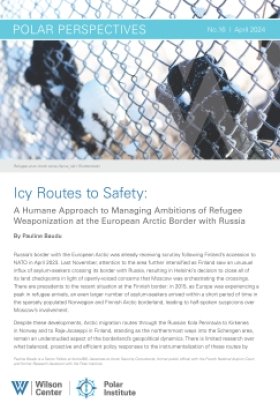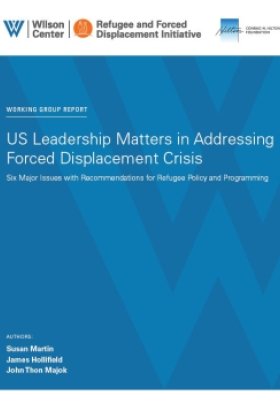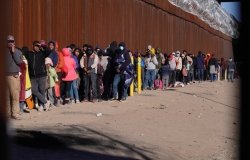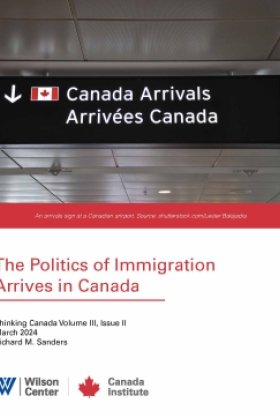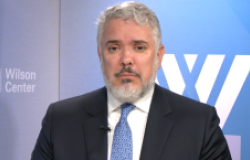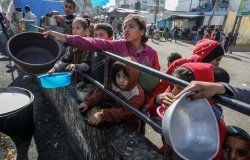<b>Book Discussion with Bruce Clark</b> <br>Twice A Stranger: How Mass Expulsions Forged Modern Greece and Turkey
Bruce Clark, International Security Editor, The Economist
Overview
Mr. Clark noted that the Lausanne Treaty defining Greek-Turkish relations after World War I is remarkably salient today, addressing the critical terms under which people of two faiths, Islam and Christianity, may or may not co-exist in modern society.
The treaty detailed the legal framework for the exchange of Greek Orthodox Turkish nationals and Muslim Greek nationals, excepting only a few locations in each country. Discourse surrounding the treaty centered on how to balance the severe moral consequences of expelling citizens for merely being members of the minority religious community, against the strategic need to establish a lasting peace in a region marked by one hundred years of near-continuous war.
The Lausanne Treaty was "the culmination, the crescendo, of a process whereby sharply defined nation-states were born out of the multinational Ottoman Empire - a process by which people came to see their identity in a new way, less exclusively in religious terms and more in ethnic national terms."
In this light, the "unmixing" of peoples, just months after the end of the Turkish-Greek war, was logically concluded. As many as a million Greek Orthodox Turkish nationals had already been expelled from Anatolia following the defeat of the Greek army. Turkish authorities were explicitly clear that the new Turkish republic had no place for disloyal Christian minorities.
If mass expulsion was already underway, what interest did each party serve in regulating this process by treaty?
For Greece, the Lausanne convention was the means to regulate the massive and otherwise uncontrollable influx of Orthodox Christians from Anatolia. The incoming refugees constituted nearly twenty percent of Greece's population, generating sufficient pressure on the Greek nation-state to nearly collapse it.
The expulsions of Muslims from Greece helped free up the farmlands of Greece's Macedonian region, where many of the Greek Orthodox Turkish nationals were then settled. The assets of the expelled Muslim families were essential in securing foreign loans that Greece needed to provide material support for its refugee population, in the face of considerable skepticism of Greece's credit-worthiness by the international banking sector. Foreign investment in Greece was readily facilitated by the substantial assets left behind by expelled Muslims, which Athens then posited as securities for desperate loans. From this perspective, Mr. Clark sees an agreement to expel its Muslim population as an almost inevitable policy option for Greece.
For Turkey, one of the major attractions of a negotiated population exchange, as opposed to a spontaneous one, was that it made it impossible for anti-Turkish Western powers to use the expulsion against the new Turkish state in any international forum. The Lausanne Treaty provided Turkey with a much needed degree of legitimacy, validating the expulsions of Orthodox Christians and guaranteed that the country would not be drawn into legal disputes over the implementation of the population exchange in the future.
Mr. Clark also focused on the present landscape and popular cultures of Greece and Turkey, as influenced by the population exchanges. The trauma and psychological pain of the expulsions have been underestimated, and down-played, by both countries and by the international community. Several factors have contributed to this, foremost the need for Greece and Turkey in the immediate aftermath of the war to build homogenous and functional nation-states. This led them to play down the similarities between the two nations and exaggerate the differences. Mr. Clark contends there are still traces of this very real trauma among the descendants of the transferred populations in both countries.
Though the humanitarian terms of the Lausanne Treaty were highly undesirable, from a modern perspective they have been successful. Its architects' calculations proved to be correct, in that the religiously homogeneous nation-states emerged from the treaty, from what were previously very diverse populations, despite their substantial cultural and ethnic diversity.
No part of this history diminishes the serious political, cultural, and social conflicts suffered by Greece and Turkey since the treaty was implemented. For instance, over the past century, Greece has experienced civil war, foreign occupation, and dictatorships.
But Mr. Clark concludes that the original problems of massive population expulsions and inflows were coupled with a healing process whereby, within a generation or so, refugees were absorbed into gradually more cohesive societies, offering diplomats today the hope for strong resolution mechanisms for even the most intense internal conflicts.
Hosted By

Global Europe Program
The Global Europe Program is focused on Europe’s capabilities, and how it engages on critical global issues. We investigate European approaches to critical global issues. We examine Europe’s relations with Russia and Eurasia, China and the Indo-Pacific, the Middle East and Africa. Our initiatives include “Ukraine in Europe” – an examination of what it will take to make Ukraine’s European future a reality. But we also examine the role of NATO, the European Union and the OSCE, Europe’s energy security, transatlantic trade disputes, and challenges to democracy. The Global Europe Program’s staff, scholars-in-residence, and Global Fellows participate in seminars, policy study groups, and international conferences to provide analytical recommendations to policy makers and the media. Read more
Thank you for your interest in this event. Please send any feedback or questions to our Events staff.
